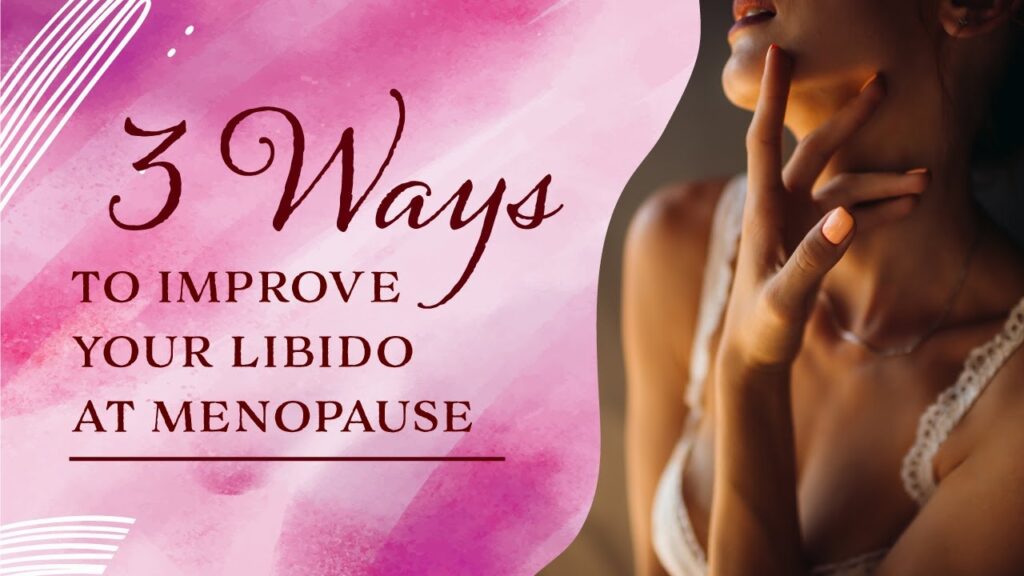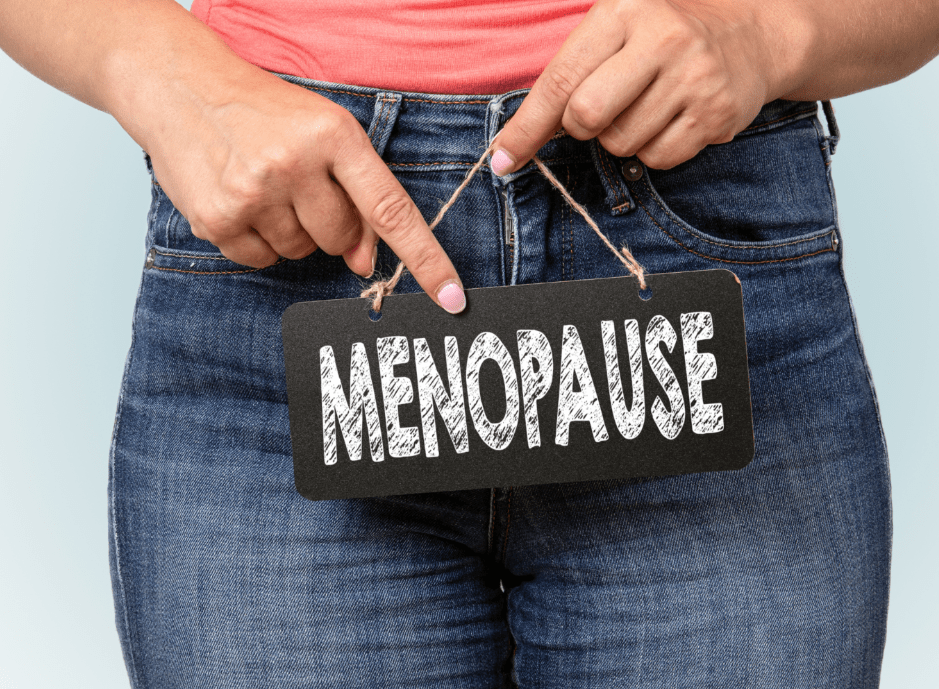Does Menopause cause low libido? This is a question often asked by many females. Or is it an excuse often used so as not to have to change anything or do the work to engage in sexual activities? Or are there really physical changes that happen in menopause that do cause low sex drive or libido?
According to Harvard Health, several years ago, a large national survey found that sexual activity fell significantly with age. Fewer than half of women ages 57 to 73 said they were sexually active, and those who were had sex less than twice a month, on average.

Masterclass: Menopause Deep Dive
Key Takeaways
- Menopause can impact libido or sexual desire in women due to a variety of physiological changes but libido varies among individuals.
- Depression, common in midlife women, can lower libido. But, research doesn’t establish a direct link between menopause and depression – they seem to affect sexual desire independently.
- Menopause does not inherently cause low libido. Besides hormonal shifts related to menopause, relationship changes, stressful life events, and medications, among others, can also alter sexual interest.
- Hormones play a significant role in your libido during menopause. Decreased levels of estrogen/testosterone and physical symptoms during menopause can disrupt intimacy. However, women do report improved sex drive during menopause due to factors like reduced pregnancy anxiety, elevated self-esteem, etc.
- Along with physical changes, psychological and emotional factors also contribute to fluctuations in libido. Mood swings and fatigue can negatively impact sexual interest while stress and self-image can also affect libido.
- Open communication with partners, using lubricants, relaxation practices, pelvic floor exercises, Hormone Replacement Therapy (HRT), testosterone therapy, and medical interventions can address low libido during menopause. Remember, the journey through menopause can be a rewarding one with the right strategies.
- Supplements, aromatherapy, acupuncture, and yoga are potential solutions for managing libido changes during menopause.
Does Menopause = Low Libido? NO!
 While changes that occur at menopause that were described above can impact libido, menopause does not inherently cause low libido.
While changes that occur at menopause that were described above can impact libido, menopause does not inherently cause low libido.
Many women lack libido at different ages and for different reasons and the result is lack of sex, or sexual experiences that are not pleasurable or satisfying.
What can cause this? Interest in sex can change due to hormonal changes, changes in your relationship with your partner, stressful life events like a death of a loved one, childbirth, breastfeeding, medications, or your health. It can also be related to how you feel about your body, your day to day stress level, how connected you feel to your partner, how safe you feel in your environment, what you have been told about sex or how you were raised or so much more!
It is NOT because you are aging! It is important to look at what may be the root cause of low libido.
Menopause Science Debunking the Low Libido Myth
A 2018 analysis of 191 research articles about self-esteem that included data from almost 165,000 people found self-esteem increases gradually throughout middle age before peaking at age 60. A more recent study published in the journal Body Image, confirmed this research for women in particular, finding that their self-esteem increased with age and was highest at 60 years old.
Therefore, it is a myth that just because you’re going through the menopause, that your sex life is over. This does not have to be the case. If you want to enjoy the pleasure that is available to you in your body, either alone or with a partner, it is very possible even after menopause. But don’t wait to make changes!
A declining sex drive can create a vicious cycle because the longer you go without having intercourse, the more your vaginal tissue can atrophy, even causing your vagina to shorten. You may also become more anxious about sex the less you have it, creating a mental barrier, as well.
- Lube is your new best friend. Vaginal dryness is a common side effect of menopause and it can make sex about as appealing as a root canal. But a little (or a lot) of the right lube can make all the difference. Embrace the slip n’ slide, ladies.
- Next, communicate with your partner. I know, I know, talking about sex can be awkward, but, it’s worth it when it’s clearly communicated. Let them know what feels good, what doesn’t, and what you need to get in the mood. Maybe it’s more foreplay, more initiation, or perhaps it’s just watching “Bridgerton” together…whatever works for you.
- Bringing some novelty into the bedroom (or wherever you like to get frisky) can also help reignite that spark. Roleplay, toys, new positions, new locations, do it outside (privately!) – get creative! Give your sex life a FUN makeover.
- Self-care, taking time for yourself – whether it’s a bubble bath, yoga class, or just bingeing trashy reality TV show you like – can work wonders for your mental state and in turn, your libido. If you feel good, you’re more likely to want to get down and dirty.
- And don’t be afraid to explore natural remedies! Herbal supplements like black cohosh, Gingko biloba, and Tribulus terrestris have been shown to help with menopausal symptoms including low libido. Just make sure to check with your doc before starting any new regimen.
- Lifestyle changes can also make a difference. Regular exercise has been linked to better self-image, lower stress levels, and increased sex drive. Plus, getting your heart rate up outside the bedroom can help you go longer and stronger in the bedroom (wink wink).
References:
Orth, U., Erol, R., & Luciano, E. (2018). Development of Self-Esteem From Age 4 to 94 Years: A Meta-Analysis of Longitudinal Studies. Psychological Bulletin, 144, 1045–1080. https://doi.org/10.1037/bul0000161.











